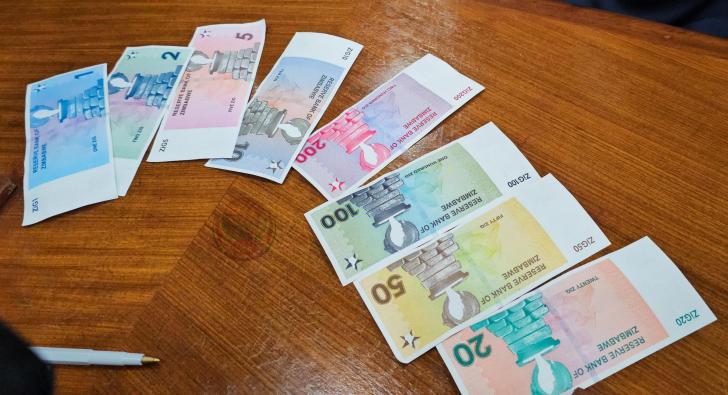News / National
Zimbabwe shops continue to reject ZiG
30 Jul 2024 at 06:39hrs |
0 Views

The surge in black-market exchange rates, which peaked at US$1:25 ZiG, has led some businesses in Bulawayo to reject transactions in Zimbabwe Gold (ZiG), defying government directives. This defiance undermines the government’s efforts to stabilize the currency and exacerbates economic instability, reducing consumer purchasing power. The official exchange rate is approximately ZiG14 to the USD.
In response, some businesses have been faking network issues with their point-of-sale (POS) machines to justify trading exclusively in foreign currency. The Reserve Bank of Zimbabwe (RBZ)'s Financial Intelligence Unit (FIU) has set up a hotline and WhatsApp number for the public to report businesses rejecting the local currency or using black-market rates.
In May, the government introduced Statutory Instrument 81A of 2024, allowing for fines of ZiG200,000 for those violating the exchange rate regulations. Despite this, some retail outlets in Bulawayo, including Greens Supermarket and Oceans, have been turning away customers trying to pay with ZiG, claiming their POS machines are non-functional.
Consumer Protection Commission (CPC) chairperson Dr. Mthokozisi Nkosi and Confederation of Zimbabwe Retailers (CZR) president Dr. Denford Mutashu have both condemned this practice, urging compliance with the law. A crackdown on such businesses is imminent.
Additionally, the Ministry of Finance, Economic Development, and Investment Promotion recently blacklisted over 50 contractors for supplying the black market after receiving payments. Finance Minister Professor Mthuli Ncube highlighted progress in the phased de-dollarisation programme, which aims to establish a mono-currency regime supported by a domestic currency to enhance local production and export competitiveness.
National University of Science and Technology (Nust) lecturer Mr. Stevenson Dhlamini and economist Dr. Prosper Chitambara commented on the economic implications of exchange rate fluctuations and the challenges businesses face in accessing foreign currency through official channels, further driving reliance on the black market.
In response, some businesses have been faking network issues with their point-of-sale (POS) machines to justify trading exclusively in foreign currency. The Reserve Bank of Zimbabwe (RBZ)'s Financial Intelligence Unit (FIU) has set up a hotline and WhatsApp number for the public to report businesses rejecting the local currency or using black-market rates.
In May, the government introduced Statutory Instrument 81A of 2024, allowing for fines of ZiG200,000 for those violating the exchange rate regulations. Despite this, some retail outlets in Bulawayo, including Greens Supermarket and Oceans, have been turning away customers trying to pay with ZiG, claiming their POS machines are non-functional.
Consumer Protection Commission (CPC) chairperson Dr. Mthokozisi Nkosi and Confederation of Zimbabwe Retailers (CZR) president Dr. Denford Mutashu have both condemned this practice, urging compliance with the law. A crackdown on such businesses is imminent.
Additionally, the Ministry of Finance, Economic Development, and Investment Promotion recently blacklisted over 50 contractors for supplying the black market after receiving payments. Finance Minister Professor Mthuli Ncube highlighted progress in the phased de-dollarisation programme, which aims to establish a mono-currency regime supported by a domestic currency to enhance local production and export competitiveness.
National University of Science and Technology (Nust) lecturer Mr. Stevenson Dhlamini and economist Dr. Prosper Chitambara commented on the economic implications of exchange rate fluctuations and the challenges businesses face in accessing foreign currency through official channels, further driving reliance on the black market.
Source - The Chronicle
Join the discussion
Loading comments…





























